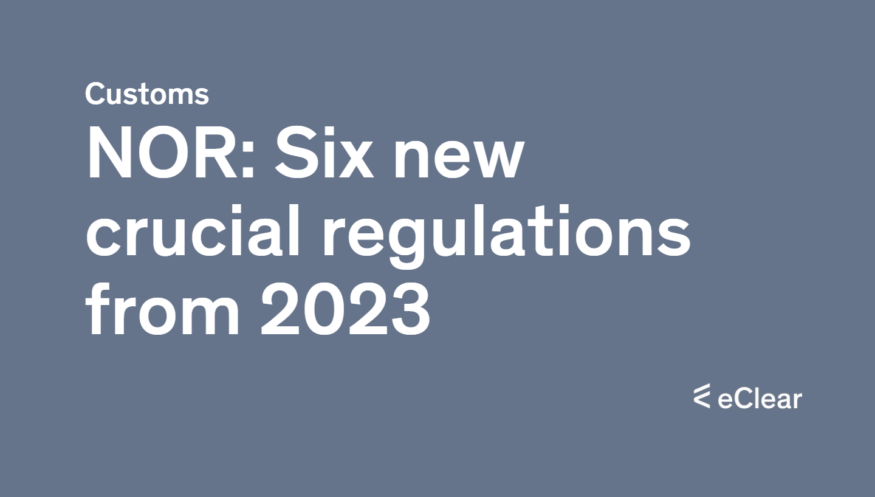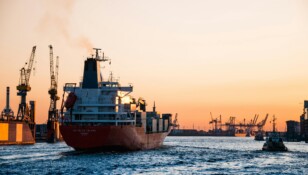It is essential for exporters to Norway to understand the new legislation and adjust logistical procedures and IT systems to avoid delays and misunderstandings when shipping goods to Norway.
A new law on import and export duties for goods
The current Customs Act in Norway will be replaced by two new pieces of legislation from 1 January 2023. The regulations will be contained in the Customs Act, while the customs procedures will be regulated in the Import and Export of Goods Act. There will also be new regulations for each of the acts. Most existing legislation will be incorporated into the new law without any changes. All legal references will be new, but these references are predominantly crucial for customs authorities and advisors.
Certification of export by the transporter is still required
In Norway, the forwarder must confirm that the goods are exported from Norway by entering a stamp, signature or similar in a specific box on the export declaration. This very old-fashioned and impractical requirement is retained in the new legislation, even though the authorities have suggested several times that the bill be updated in this respect. The provision is critical to exporters, as the certified export declaration is a prerequisite for zero-rating VAT on export sales.
Corrections to import declarations, e.g. due to transfer pricing adjustments
Previously, the Norwegian customs authorities accepted that changes could be made to the declared information by informing them in a letter of the need for adjustments, after which the customs authorities would issue a single adjustment declaration for the entire period. This is relevant, for example, when transfer pricing adjustments change the customs value for goods imported during a whole year.
Recently, the customs authorities in Norway have moved towards correcting every declaration submitted during the period in question. This increases costs and workload for importers who frequently deliver goods to Norway. This previous administrative practice is continued in the new legislation. The legislation also contains a provision that allows the authorities to be more flexible in exceptional cases. However, the term “special case” is not further defined.
New requirements for customs agents
To align Norwegian customs law with EU customs law, the rules for customs representation have been amended and expanded. From 1 January 2023, customs brokers and other third parties acting on behalf of importers and exporters must be able to prove that the third party is authorised to do so by the importer or exporter through a formal or informal power of attorney.
This won’t be easy in many import situations, as it is common for the foreign seller to organise the transport to Norway, and the transporter often also carries out the customs clearance. In these cases, there is no agreement between the customs agent and the importer.
Suppose customs cannot prove that the company is authorised to act on behalf of the importer. In that case, the customs agent may be held directly responsible for any incorrect customs clearance, including possible additional duties and import VAT. This may also indirectly impact the seller abroad, as the seller has provided the customs agent with information to declare the goods, and customs are likely to hold the seller responsible for any errors in the declaration.
A significant change in import procedures
The procedure for declaring goods for free circulation in Norway will change significantly. Under the current rules, goods in transit can be cleared through customs within ten days of arrival at the Norwegian customer. In future, goods will have to be cleared through customs before being imported into Norway. It will, therefore, no longer be possible to ship goods to Norway, where all the paperwork is not in order at the time of departure. The change is accompanied by a new electronic declaration requirement about the physical consignments and the means of transport. The new reporting obligation is in addition to the obligation to declare the goods and possibly complete a transit procedure in Norway.
Implementing this part of the new customs rules will be gradual, and at this stage, it needs to be clarified when the different parts of the new import procedure will become mandatory. Freight forwarders, customs agents and importers have called for the new rules to become mandatory from 2025, while customs authorities have indicated that they intend to introduce mandatory pre-import customs clearance from September/October 2023.
The changes in legislation and procedures will affect importers in Norway and suppliers abroad, forwarders and customs agents. Most likely, transit procedures (including information exchange), documentation, and IT systems will have to be changed.
Source: blogg.pwc.no







